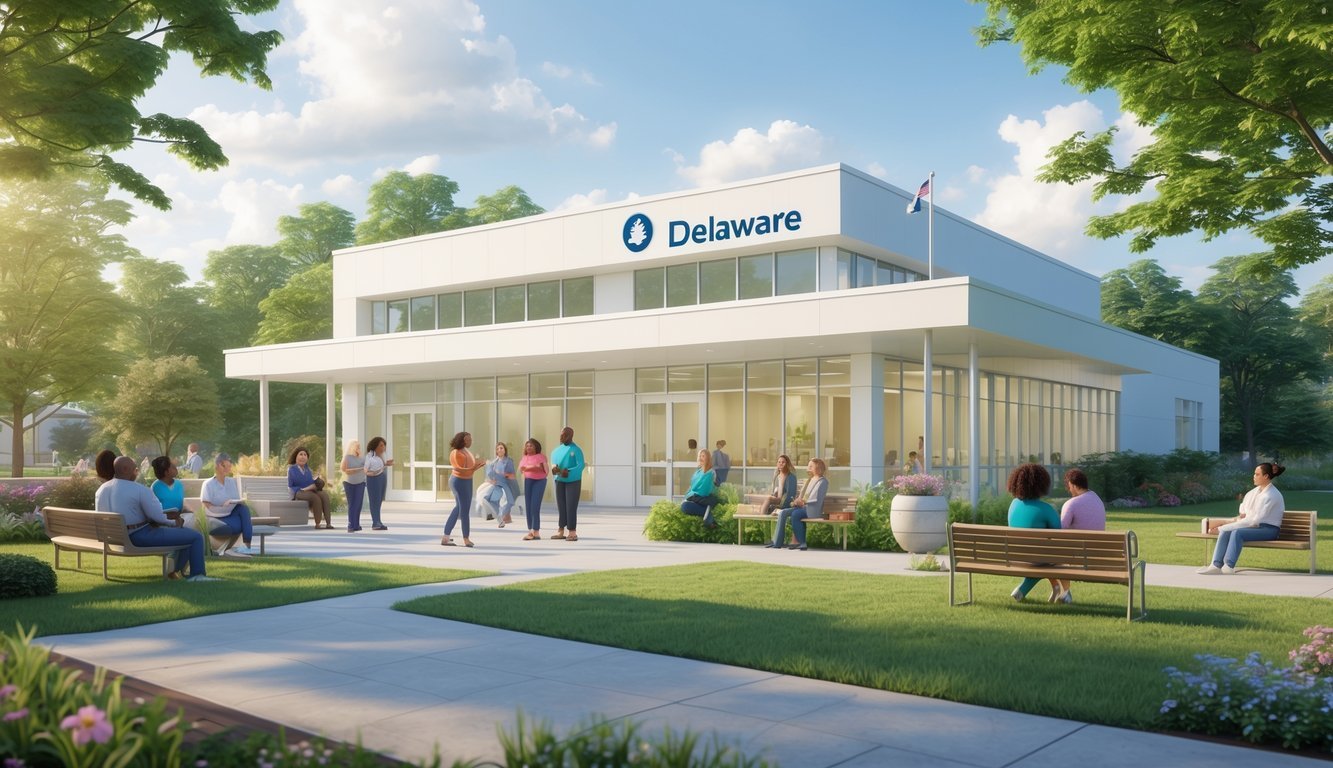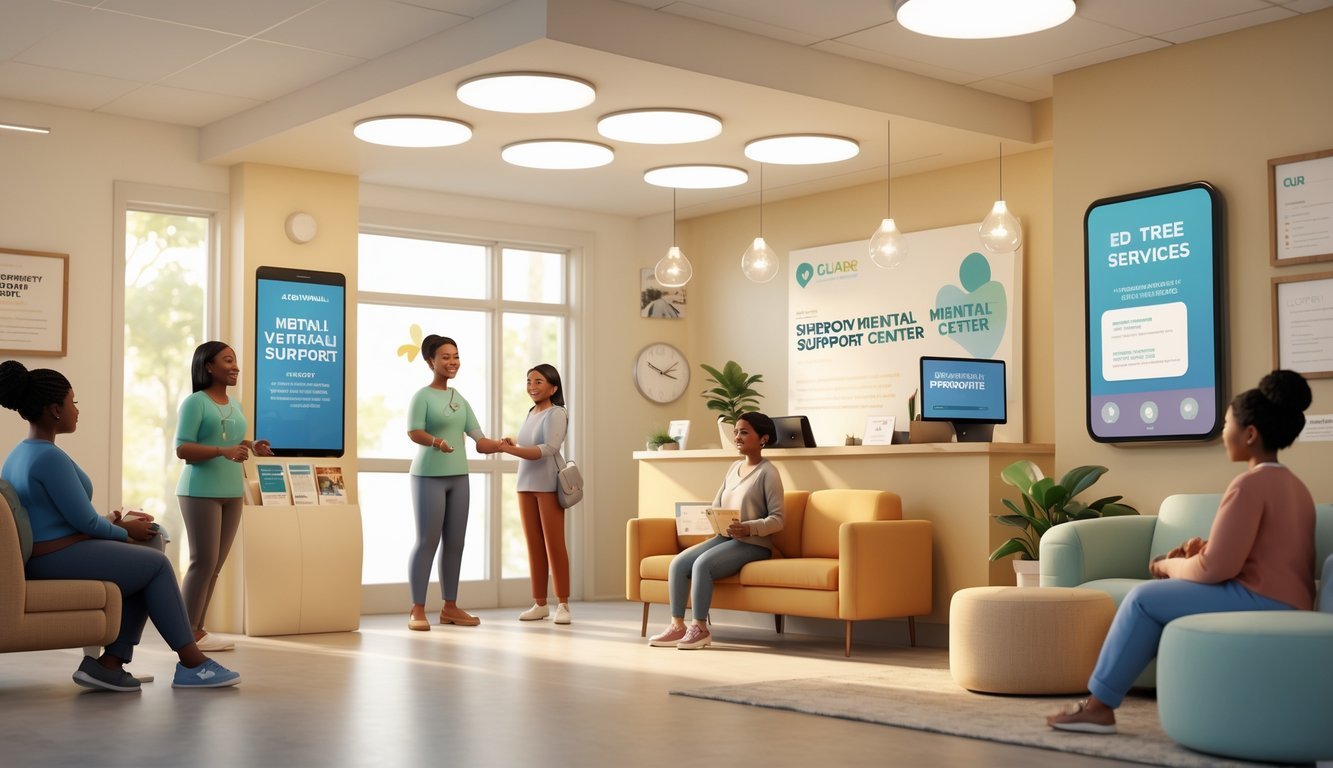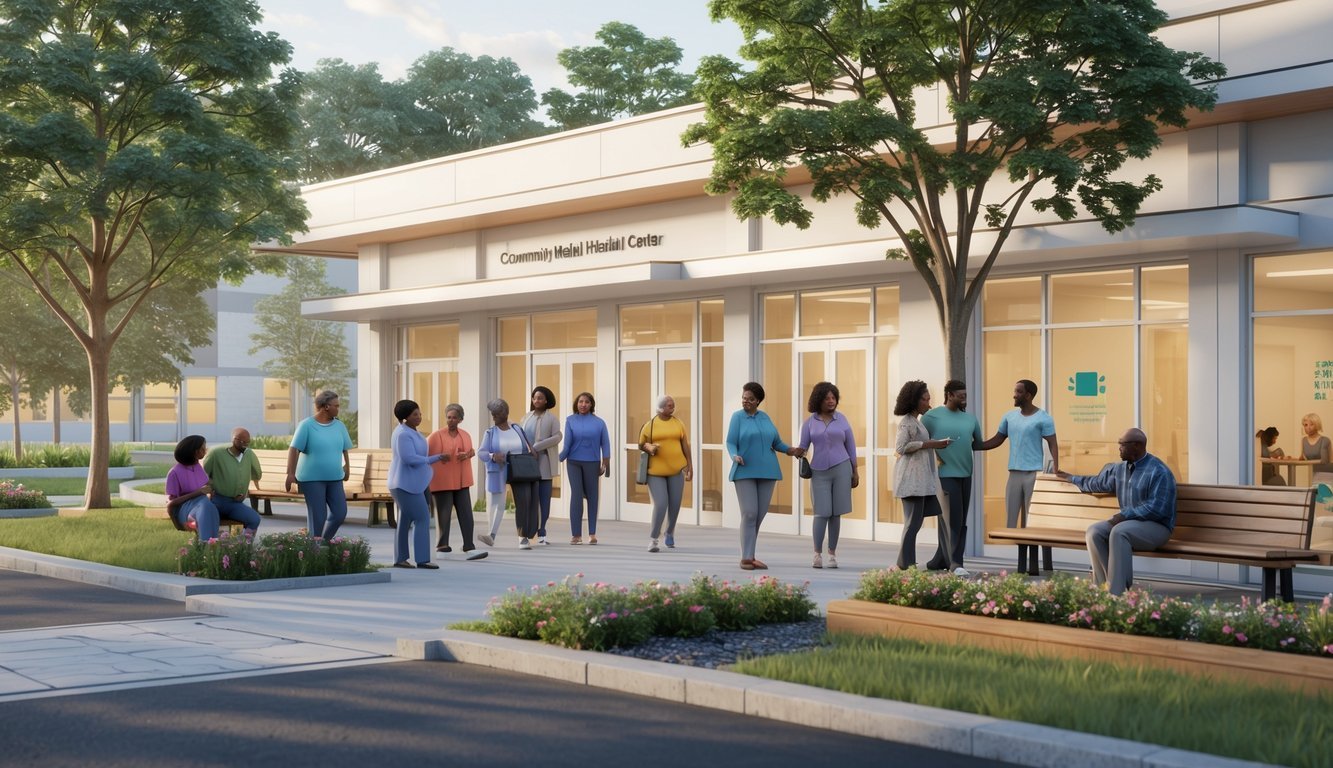PsychNewsDaily Publishers
100 Summit Drive
Burlington, MA, 01803
Telephone: (320) 349-2484
PsychNewsDaily Publishers
100 Summit Drive
Burlington, MA, 01803
Telephone: (320) 349-2484
Delaware offers various free mental health resources, including state-funded programs, community health centers, and crisis support, ensuring accessible care for residents regardless of income.

Mental health support shouldn’t come with a price tag that puts it out of reach. If you’re struggling with mental health challenges in Delaware, you don’t have to face them alone or skip getting help just because of money worries.

Delaware has a bunch of free mental health services. State-funded programs, community groups, and crisis support networks all provide counseling, therapy, and emergency intervention at no cost to residents. The state’s Division of Substance Abuse and Mental Health offers free treatment services if you don’t have insurance or your coverage just isn’t enough.
If you need help right away, ongoing therapy, or just someone to guide you through the process, Delaware has resources for you. Sometimes, just knowing what’s out there is the first step toward getting the support you need.

Delaware opens up several ways to access free mental health care. State-funded programs, community health centers, and university services all help make care possible. Publicly funded addiction treatment services help people without insurance or with limited coverage.
The Division of Substance Abuse and Mental Health in Delaware runs treatment programs at no cost. If you don’t have health insurance or your plan falls short, you can use these services.
Delaware County offers mental health services to people of all ages through their Office of Mental Health. The county connects individuals and families to ongoing treatment and crisis support.
Community health centers across the state offer sliding-scale mental health services. Many centers give same-day appointments and crisis intervention.
University-based programs reach beyond just students. The University of Delaware’s health clinics provide mental health services, care coordination, and health coaching at their STAR Campus.
Crisis hotlines and text services run 24/7 statewide. You can get connected right away with licensed mental health professionals in emergencies.
Income requirements change from program to program. Most serve people at or below 200% of the federal poverty level, but some crisis services don’t look at your income.
You have to live in Delaware. Most programs welcome both documented and undocumented residents.
During intake, you’ll need to show proof that you’re uninsured or that your insurance doesn’t cover enough mental health care.
Adult services usually start at age 18. Youth programs require parental consent.
You’ll probably need:
Medicaid expansion covers mental health services for adults earning up to 138% of the federal poverty level. This includes therapy, medication, and crisis intervention.
State general funds help run programs for people who don’t qualify for federal programs. Delaware sets aside money for uninsured mental health care.
Sliding-scale fees adjust based on your income and family size. Depending on your finances, you might pay anywhere from nothing up to $150 per session.
Most facilities offer payment plans. You can set up monthly schedules that fit your budget.
Federal Qualified Health Centers in Delaware provide mental health services on a sliding scale. These centers won’t turn you away if you can’t pay.

Delaware has several options for immediate mental health crisis intervention. You’ll find 24/7 hotlines, mobile crisis teams, and emergency centers that offer free support when you need help fast.
Delaware’s trained mental health professionals run crisis intervention services around the clock. You can reach out any time, day or night, if you’re facing a mental health emergency.
Mobile crisis teams come to you. These teams, made up of licensed clinicians, assess your immediate needs and provide on-site counseling and safety planning.
Crisis intervention workers help you build coping strategies during tough moments. They’ll also connect you to ongoing treatment options once things settle down. Emergency psychiatric evaluations are available at certain facilities statewide.
You can walk into community mental health centers during a crisis. No appointment needed. Staff members will do a risk assessment and work with you on a safety plan.
Community crisis centers in Delaware give face-to-face support in local areas. Licensed counselors and peer support specialists are there 24/7.
Crisis stabilization units offer short-term residential care. You might stay a few days and get intensive support to help avoid psychiatric hospitalization.
Peer recovery specialists work with clinical staff at many centers. They bring their own lived experience with mental health challenges, adding a personal touch to the professional help.
Crisis respite programs provide temporary housing if you’re in a mental health emergency. You get round-the-clock supervision and therapeutic activities, usually for three to seven days.
The 988 Suicide & Crisis Lifeline connects you right away with local crisis counselors in Delaware. This free service runs 24/7 and uses trained mental health professionals.
You can text HOME to 741741 to reach Delaware’s Crisis Text Line. Crisis counselors respond within minutes by text, which is great if you’d rather write than talk.
Key Emergency Numbers:
The National Alliance on Mental Illness Delaware helpline gives information and referrals. Call during business hours for help finding local services. They keep updated lists of crisis resources across the state.

Delaware’s community-based mental health programs come from nonprofits, schools, and peer networks. These groups offer free or low-cost services to help you get care and build support.
Local nonprofit organizations in Delaware provide important mental health services to people in the community. They often set fees on a sliding scale or offer free services if your income is low.
Some nonprofits focus on certain groups or specific mental health needs. You’ll find organizations for trauma recovery, while others zero in on anxiety or depression.
Common services:
These organizations hire licensed therapists and social workers. You can reach out to them directly to ask about eligibility and appointment times.
Many nonprofits team up with hospitals and health centers. This makes it easier for you to get care for both your mental and physical health.
Delaware schools offer mental health support through counselors and special programs. University counseling centers act as mental health hubs for students.
School-based services:
Delaware State University counseling services help students succeed in school and life. These programs create a space where you can focus on your studies while managing mental health.
Some schools offer extra support for specific student groups. Mental health resources for marginalized students help Black, Indigenous, Latinx, and AAPI students with unique challenges.
School counselors work with parents, teachers, and staff. They provide consultations and training to help make schools more supportive.
Peer support programs match you with people who’ve faced similar mental health challenges. Trained peer specialists use their personal recovery stories to guide others.
Peer recovery specialists offer support for addiction and mental health conditions. They share what worked for them and use professional training to help you along.
Benefits of peer support:
Family support groups teach your loved ones about mental health conditions. These groups show families how to give good support and take care of themselves too.
Many peer programs meet at community centers, libraries, or clinics. Some focus on depression or bipolar disorder, but others welcome anyone needing mental health support.
You can find peer groups through mental health centers or by reaching out to local organizations.
Getting free mental health services in Delaware means knowing what you qualify for and gathering the right documents. You can apply through state programs, federal help, or community centers with sliding-scale fees.
Delaware’s Division of Substance Abuse and Mental Health (DSAMH) has free addiction treatment services for people without insurance or with plans that don’t cover enough.
You can apply for Medicaid on Delaware’s Health and Social Services website. Medicaid covers most mental health services, like therapy and medication.
Federal programs you might qualify for:
Call 2-1-1 for help applying to several programs at once. They’ll connect you to application assistance and help you figure out what fits your situation.
Have these documents ready before you apply:
You’ll probably need:
Income guidelines change every year. Most programs follow federal poverty level rules. For a family of four, earning under $31,200 a year usually means you qualify for free services.
Applying online is usually faster than mailing in forms. Keep copies of everything you send. If you don’t hear back in two weeks, check on your application.
Delaware County offers a wide range of mental health services through their Office of Mental Health. They connect people with ongoing treatment and crisis support.
Community health centers set their fees on a sliding scale, depending on your income.
Some places might charge as little as $20 per visit if you qualify.
Search tips for finding centers:
A lot of centers take walk-ins for initial assessments.
It’s a good idea to call first, just to ask about their application process and which documents you’ll need to bring.